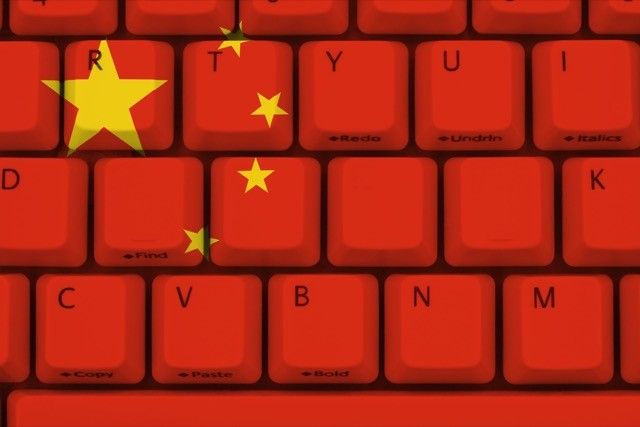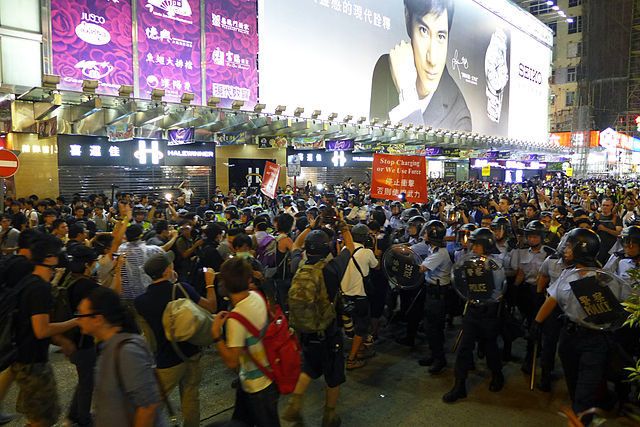An ad-hoc mesh network, spreading across Havana, connects people without Internet access. Hot air balloons carry news of the outside world, and American TV shows, to the people of North Korea.
When it comes to protesting oppressive regimes, brutal anti-demonstration tactics, and widespread censorship, the Internet is an invaluable tool. But what happens when you can't rely on the Internet? What if the stranglehold of censorship is too tight, physical access is restricted, or the threat of repercussions is too great? Here are five stories of overcoming adversity to share information in the most difficult of situations.
Havana's Wi-Fi Network
The citizens of Cuba have very limited access to the Internet. The government claims that the US embargo has prevented the movement of advanced technology into the country, but activist organizations say that the government uses this as an excuse to censor information and charge exorbitant fees for access.
Whatever the case, it's very expensive to get on the internet in Cuba. In a country where the average wage is around $25 per month, many people can't afford to have a computer and access to the web, but Cubans have become very good at improvising ways to get around the problems they face.
For example, Havana's StreetNet (SNet) is a wi-fi only information-sharing network; for around $200, a group of computers can be fit with extra-powerful wi-fi antennas and the proper cabling to form a node for the network, which communicates with other computers directly – without access to the internet.
An AP story reported that the network shares popular TV shows and movies, and lets users play games, share files, check sports scores, and even access a downloaded version of Wikipedia that's regularly updated by users with access to the internet.
Owning wi-fi equipment in Cuba requires a special license from the government, which many — if not most — SNet users don't have. This means that the network violates Cuban law, which puts it at risk of being shut down. However, the users of SNet police themselves when it comes to content, and the government has turned a blind eye to the network. To keep it that way, there are rules: no pornography, political discussions, anything that could be considered critical of the government, or even file-sharing outside of prescribed hours.
The almost 9,000 users of the network, as long as they obey these rules, feel safe using it. It seems impossible that the government wouldn't know of such a large network, but its continued existence suggests that they'll allow it as long as no one causes trouble
Balloon-Dropping the Outside World into North Korea
As we saw in Matt's article about the technological situation in North Korea, censorship and the limitation of physical access to the internet prevent the vast majority of North Koreans from seeing what the world outside of the country looks like. But activists in South Korea are doing what they can to smuggle information over the border.
One imaginative tactic that they've used to do this is to loft 20-foot-tall helium balloons over the border from a mountain on the South Korean side of the demilitarized zone. The balloons are painted with anti-regime slogans and carry packages of DVDs, USB drives, radios, and thousands of leaflets detailing life in the outside world. A timer is attached to each balloon, and once they've traveled deep into North Korean territory, the timer goes off, the balloon is popped, and the payload is dropped into the countryside.
Obviously, this isn't the most subtle way to get information into the country. North Korea does know about these drops, and has made a number of threats against the organizations that send the balloons. One of these groups, Fighters for a Free North Korea, has been threatened by Pyongyang — in one case, the South Korean government took the threat so seriously that 300 policemen were sent to the launch site. Park Sang Hak, the leader of the group, was arrested as he tried to make it to another site. He was kept in jail for six hours, then released.
This certainly wasn't the only time Park was threatened. The Atlantic reports that a North Korean assassin tried to kill him in Seoul, in 2011, with a poisoned needle hidden in a pen. A tip-off from the South Korean government saved his life.
As long as the totalitarian Kim regime rules the DPRK, Fighters for a Free North Korea will loft their balloons across the border, bringing hardware, information, and even American TV shows to North Koreans – evidently Desperate Housewives is quite popular.
Using Old-School Tech in Syria
Since the beginning of the Arab Spring, technology has played a significant role for both governments and rebels. Telecomix, a hacker collective, has done a great deal to support the people behind uprisings around the Arab world, including Egypt, Syria, and Libya.
Unlike Anonymous, Lulzsec, and Lizard Squad, Telecomix is more interested in creation and assistance than desctruction and irritation (though, to be fair, some people hold the former groups up as freedom fighters). Telecomix has been branded as a sort of "international tech support" for people living under oppressive regimes. For example, when communicating with rebels who were attempting to hold Tahrir Square, Telecomix sent them instructions for creating a mesh network, and taking standard clock radios and turning them into two-way radios so that protestors could stay organized.
Since the start of the civil war in Syria, Bashar al-Assad's government has tried to control or disrupt access to the Internet — not only to block communication between rebel cells, but also to keep videos and reports of atrocities and war crimes from reaching the outside world. Access to the internet around the country is spotty, and can go down completely in a city or region before an attack.
Despite the governmental crackdown, Telecomix has been finding ways to help Syrian rebels communicate, share information, and get news to and from the outside world. They spread messages through Facebook and Twitter with numbers that allow Syrians to access to dial-up internet, and another number where they can leave a message and have it tweeted.
Telecomix and Anonymous also put together a PDF of useful dial-up numbers and radio frequencies, then found ways to fax them into the country. Telecomix distributed online safety tips, to help keep people safe and avoid internet surveillance. The support of Telecomix helped Syrian citizens stay safe, and helped rebels keep in touch with each other and the outside world.
Of course, helping the rebels is a double-edged sword. Many international organizations and governments have expressed concerns over the tactics used not only by al-Assad, but also by the rebel militants, who — much like the current regime — carefully tailor the messages and views they present to the world.
Finding Cracks in the Great Firewall of China
Unlike North Korea, China's system for restricting free access to the Internet is quite sophisticated — access to the Internet is encouraged, and there are more internet users in China than any other country on earth. While attempting to become one of the world's foremost nations, Beijing has invested a great deal of money and effort in increasing Internet access.
But they don't promote completely unrestricted, open access to all of the content that's out there. Their censorship technology is some of the most complex in the world, and it's often created by big-name American companies like Cisco. Both Google and Yahoo have been implicated in helping the Chinese government censor information, or access potentially incriminating e-mails.
The Great Firewall of China, though, isn't invincible. Many activists are working on ways to bypass internet censorship put in place by the government. Dynamic Internet Technologies (DIT), founded by a Chinese-born software engineer in the United States, uses a program called FreeGate to look for weaknesses in the wall and exploit them. It allows unrestricted anonymous access to sites that are censored by the Chinese government, by hosting them on quickly-changing temporary URLs.
As the Chinese get better at fighting back, DIT gets better at advancing its tactics — the app is updated frequently, and has gone through many iterations. The founder of DIT also gets information into the country by sending millions of e-mails to subscribers of banned publications and activist groups — the e-mails contain links to the proxy network of sites, giving recipients access to restricted information.
Starting Fires with Messaging in Hong Kong
Hong Kong has seen a great deal of unrest lately, with protests in the country gaining international attention. But to keep protestors from sharing information with each other and mainland China, both the Hong Kong and Chinese governments have restricted access to the Internet and information-sharing capabilities on social networks.
To get around these restrictions, a new type of messaging app has been adopted by many in Hong Kong. It's called FireChat, and it allows users to post to public chatrooms without accessing the Internet. It uses cellular networks, wi-fi, phones' cell radios, and Bluetooth to create a mesh network between phones. Even if a cell network or wi-fi isn't available, messages can be relayed through phones that are in close proximity.
The app is in wide use in Hong Kong, with over 100,000 users. A reported 33,000 users accessed the service at one time last September. Protesters use the app to post about required supplies, share protest tactics, and spread rumors about government actions.
Because of the unruly nature of public forums, the information spread through FireChat can be questionable. Nevertheless, it's proven a valuable tool in Hong Kong, as well as in Taiwan, Iran, and other places where communication is limited or risky. Because Internet access is necessary to download the app, its use in mainland China is limited. Open Garden, the publishers of the app, are reportedly working on ways to get it into the country (you can read a great interview with the CEO of Open Garden about their aspirations at PBS).
Innovation Prevails
The Internet is usually described as a bastion of information freedom (which, of course, includes hatred, bigotry, and other shameful sorts of speech), but people in many countries face limited access and highly censored sources of information. Despite governments' ruthless censoring and access-limiting tactics, determined groups of citizens continue to find ways to share information, both with each other and the world at large.
It's a constant game of cat-and-mouse. But, at least for now, the mice are doing surprisingly well.
What other ways have you heard of citizens using to get around censorship? Have you participated in any of these attempts to help information-deprived countries? Do you think that the tight grip of totalitarian regimes can last? Share your thoughts below!
Image credits: Brick wall Via Shutterstock, Havana (Habana) in sunset via Shutterstock, Mona Sosh via Wikimedia Commons, Computer keyboard the Chinese flag on it via Shutterstock, Wing1990hk via Wikimedia Commons.





